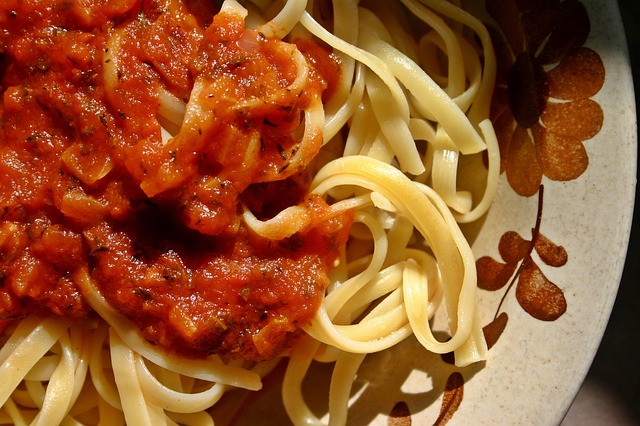Matthew 21:1-11
21When they had come near Jerusalem and had reached Bethphage, at the Mount of Olives, Jesus sent two disciples, 2saying to them, ‘Go into the village ahead of you, and immediately you will find a donkey tied, and a colt with her; untie them and bring them to me. 3If anyone says anything to you, just say this, “The Lord needs them.” And he will send them immediately.*’ 4This took place to fulfil what had been spoken through the prophet, saying,
5 ‘Tell the daughter of Zion,
Look, your king is coming to you,
humble, and mounted on a donkey,
and on a colt, the foal of a donkey.’
6The disciples went and did as Jesus had directed them; 7they brought the donkey and the colt, and put their cloaks on them, and he sat on them. 8A very large crowd* spread their cloaks on the road, and others cut branches from the trees and spread them on the road. 9The crowds that went ahead of him and that followed were shouting,
‘Hosanna to the Son of David!
Blessed is the one who comes in the name of the Lord!
Hosanna in the highest heaven!’
10When he entered Jerusalem, the whole city was in turmoil, asking, ‘Who is this?’ 11The crowds were saying, ‘This is the prophet Jesus from Nazareth in Galilee.’
5 ‘Tell the daughter of Zion,
Look, your king is coming to you,
humble, and mounted on a donkey,
and on a colt, the foal of a donkey.’
6The disciples went and did as Jesus had directed them; 7they brought the donkey and the colt, and put their cloaks on them, and he sat on them. 8A very large crowd* spread their cloaks on the road, and others cut branches from the trees and spread them on the road. 9The crowds that went ahead of him and that followed were shouting,
‘Hosanna to the Son of David!
Blessed is the one who comes in the name of the Lord!
Hosanna in the highest heaven!’
10When he entered Jerusalem, the whole city was in turmoil, asking, ‘Who is this?’ 11The crowds were saying, ‘This is the prophet Jesus from Nazareth in Galilee.’
This is not a triumphal sermon.
This will not be a “good” sermon.
I want to be done with the good sermon.
I’m tired of the stress and the fear and the wringing the Holy Spirit around the neck just to give me, something, anything, that will please and meet the needs and entertain and spiritually feed. I’m tired of being a fraud.
So. You’re gonna leave this place and your mother-in-law will ask what you did today. And you’ll say, “I went to church.” And your father-in-law will ask, “so how was the sermon?” And you’ll say, “It totally sucked. An absolute waste of my time. I should have gone home and eaten pasta.”
And maybe that’s what we should do. Just stop this whole thing right now, just sit around and eat pasta. Because pasta doesn’t surprise, it doesn’t disappoint, it’s everything you expect it to be.
I wonder if that’s what Jesus was thinking as he somehow rode both a donkey and a colt into Jerusalem, for what he knew, and we know, to be the last time: "We should have just stayed home and eaten pasta. Linguini, Fettuccine, Farfalle, Angel Hair, whatever.”
I’m not what they want me to be, he thinks, as they wave their palms and lay down their cloaks and shout “Hosanna!” - a royal welcome.
And so they expect him to bring chariots and spears and gold and jewels and a new constitution and his virgin betrothed riding in a palanquin on the back of an elephant and whatever else goes along with being a king in first century Palestine.
They cried:
Blessed is the one who comes in the name of the Lord!
Hosanna to the Son of David! The Davidic monarchy is back!
The one who is going to give us pensions and health insurance and stable jobs with paid sick leave!
Blessed is the one who is going to stick it to the man and free us from this back-breaking work and finally make things fair.
Blessed is the one who is finally going to give the powers what’s coming to them.
Hosanna to King Jesus! It’s all going to be peaches and cream and caviar from now on!
I wonder if Jesus thinks, as he rides that coltney? donklt?, I am a fraud. That he can’t be what they set him out to be. That his kingship means suffering and death and fear and exile.
Or does he just laugh at their ignorance, does he just smile down at them from atop his donkey-colt for not really knowing what they’re asking for? I wonder if he thinks, “guys, just go home. Get a big pot of water boiling. It’s time for some ziti with marinara sauce.”
I spend a lot of my time, wandering around, feeling aimless, doing all the things, buying the groceries and feeding the kids and doing the work, all while thinking that I’m a total fraud. I don’t do quiet times. I don’t tithe anywhere near 10%. I drink too much Starbucks and once in awhile I let my kids eat at McDonald’s. I want to look like I’ve got it all together, but the truth is, I’ve lived in my house for almost eight years and have NEVER cleaned behind the fridge.
Get a pot of water boiling, kids. It’s time for pasta.
And the whole time, he’s revealing who and what are the real frauds:
People so hungry for power that they’ll tax the commoner to near-destitution.
People so nervous about their status in the world they’ll crucify an innocent man just to prove who’s boss.
An empire so fragile that this crucified peasant from the dirty junk-town of Nazareth will overturn every status quo and notion of imperial power.
Funny, how just one man riding in to town on a pokey little donkey-colt can cause such a ruckus.
Funny, how refusing to play the game of power and control can pull the thread out of the system, unravelling the whole thing.
Funny, how deciding to spend an hour eating waffles with my boys on a Saturday morning, instead of working on the perfect sermon, or balancing my checkbook, or getting the oil changed in my car, has the power to undo a little bit of fear that I’m just a fraud, that I can’t be who the world wants me to be, or, really, who I think I should be.
Funny, how spending an evening feeding hungry folks, or tutoring antsy kids, or just getting out of bed when you really just want to hide has the power to turn the world upside down.
Funny how riding a donkey into town, or planting a garden, or looking for crocuses at the end of a grey and painful March is enough. It’s enough.
Because these systems that control us, that tell us we need manicured fingernails and well-behaved kids and excellent credit scores, they’re really fragile. They’re so easily torn down, if we just look and see what the real fraud is.
A homeless peasant from the junk town of Nazareth riding on a donkey is enough to disrupt the entire Roman Empire. He enters the gates and the whole city stirs, a low rumble like the thunder of an impending storm.
Who is this guy? What’s he doing? What is he about?
And as soon as they start asking that question, it’s all over.
As soon as you start asking, “who is this Jesus guy? What is he about?” It’s all over. Your life is changed. The thread has been pulled, and all the systems of power and control - the addictions, the consumerism, the fear and the manipulation, the “I need a new minivan-ness” start to fall apart.
It doesn’t even matter what your answer ends up being.
Because you’ve let Jesus in to your gates.
You’ve let him in, riding on a donkey, maybe, or in the back of a pickup truck, or in the form of weeping or despair or desperate need, like the crowds waving their palms, with the expectation that he’s going to fix everything that is wrong in your life.
And he comes in, and instead, he upends it all. The temple you’ve built is torn down and will be rebuilt in three days. The temple of achievement and accolades, of security, of fear, or creativity, or religion, or capitalism, all those temples, torn down.
He’s coming in, not to take the power and the control and to sit in the governor’s throne. He’s coming in to tear it all down. He comes to show us who the real fraud is. He comes to tear down all the walls of judgment and fear and depression and hunger, but he’s not going to give us jewels and low deductibles and sexy spouses and steady jobs in their place.
He’s going to give us bread instead. Real. Good. Bread. Simple - yeast and flour and salt and water. But real. Not at all what we think we need. Not at all what we think we want. But real.
You’re not the fraud. The gate and the temple and the empire and the internet and the drugs and the insecurity and the fear are the frauds. How can we get to the point where we can believe this?
Where we can let the guy on the donkey come in and claim us for who we really are, and be for us, not who we think he should be, but who he actually is - The one who comes in the name of the Lord, the one who comes to overturn all the systems, all the fear, all the inadequacies, all of it. The one who comes to sit with us at the Table, who comes enjoy a good baked ziti or super-cheesy lasagna with us and we'll be surprised how good it is, how filling, how nourishing, how it was just what we needed. And Jesus will smile at you and say, this is good. Real and good. This is so good.
Hosanna. Blessed is he who comes in the name of the Lord.
Thanks be to God.



